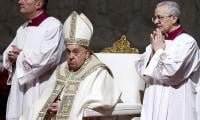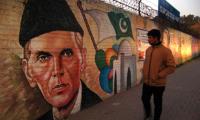PESHAWAR: A scholar of the Persian language and literature, Prof Syed Ghayur Hussain, said on Friday Attar of Nishapur (present-day Iran) was an eminent Sufi poet who continued to greatly influence Persian poetry even centuries after his death.
“Abu Hamid bin Abu Bakr Ibrahim was born in the year 1145 AD and passed away in 1221AD. He was popularly known as Attar of Naishapur or Attar Nishapuri. Being a great Iranian poet, theoretician of Sufism, and hagiographer, he is known for his classic works,” said Syed Ghayur Hussain while speaking at a special session of the Dosti Peshawar Literature Festival being hosted at the History Department of the University of Peshawar.
The session was attended by academicians, literati, students and people from other walks of life. Aslam Meer, another literatus of Persian was present there as well.
Prof Syed Ghayur Hussain, who is considered an authority on the Persian language and literature and has authored many books in the language, talked in detail about
the early life of Attar, his works, and the impact of his poetry on Persian literature.
He said Attar was born into a Persian family in Nishapur, a major city of medieval Khorasan (now in Iran). He practiced the profession of pharmacist.
Syed Ghayur Hussain said Attar wrote a collection of lyrical poems and many long poems in the philosophical tradition of Islamic mysticism.
“He had a prose work with biographies and sayings of famous Muslim sufis”, added the scholar from the Astarzai town of Kohat.
He pointed out that Attar did not attain fame as a poet in his lifetime, though he was known in Nishapur, his native town. He said his greatness as a sufi, a poet, and a master of narrative was discovered in the 15th century.
Syed Ghayur Hussain mentioned Attar’s works and termed Mantiq-ul Tayr (Conference of the Birds) as the most widely read which was in the Mathnawi genre of rhyming couplets.
He named as well Mukhtar Nama and Khusraw Nama, Asrar Nama, Musibat Nama, Ilahi
Nama, Jawahir Nama, and Shar-al Qalab as worth mentioning works of Attar of Nishapur.
A general view of the Islamabad High Court building. — Geo News/FileISLAMABAD: Justice Mohsin Akhtar Kayani of...
Representational image of a voter casting her vote during an election. — AFP/FileISLAMABAD: Election Commission of...
Activists of PTI protest on a street on October 21, 2022. — AFPMARDAN: Pakistan Tehreek-e-Insaf Peshawar Region...
Punjab Information Minister Azma Bokhari addressing an event on December 24, 2024. — Facebook@AzmaBokhariPMLNLAHORE:...
A cake cutting ceremony organised to mark the Christmas festivities at Officers Club on December 24, 2024.—...
Demonstrators of Pashtun Tahafuz Movement gather at a public rally in Peshawar in an undated image. —...







